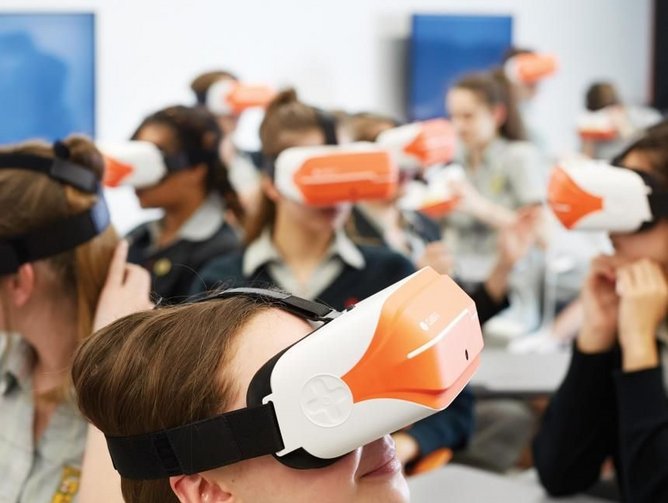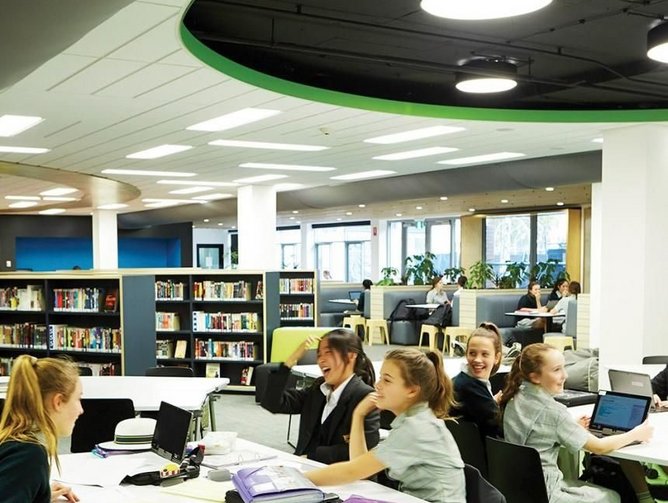A West Australian all-girls school, Penrhos College has been inspiring girls to become extraordinary women since 1952. A part of the Independent Girls’ Schools Sporting Association (IGSSA), it offers education from Kindergarten through to Year 12 as well as boarding. A pastoral care organisation with a rigorous academic program, its focus on STEM (Science, Technology, Engineering, and Mathematics) has seen the College recognised for several awards, including being the first school to win the 2017 Governor’s School STEM Award in both the Primary and Secondary categories (after which Penrhos stood down, in order to allow other schools to shine).
“A Penrhos girl is independent and resilient. She is the girl of today, well-prepared and equipped for the challenges of tomorrow. We are committed to providing an education that honours our traditions and Christian values in a climate of technological and global change. Our girls are free to pursue excellence in an environment free from gender stereotypes in the subjects they study, the activities they participate in and the careers they ultimately choose.” says Mullally.
Neil Mullally has been working at Penrhos College as Director of Information Communication Technology (ICT) since July of this year. With 25 years’ experience in IT, he has a broad background that he brings to the education sector, having worked in such varied fields as finance, retail, manufacturing and critical infrastructure being Perth Airport . “I’ve worked in industries where we have our own data centres on premise through to other industries where everything was outsourced into our own private cloud including Managed Services.” Says Mullally, “We have a lot of physical infrastructure on site at Penrhos.” As Director of ICT, Mullally oversees five teams, from service delivery, systems & infrastructure, network security, corporate application support and pmo..
Penrhos College has always been at the top of tech innovation in the education sector. It was one of the first schools to offer personal laptops to every single student from Year 5, an initiative now followed across Australia. According to Mullally, though, the education sector overall is behind when it comes to regulations regarding information security and data protection. “From my experience,” he says, “other industries are very heavily regulated. For finance industries you have to meet APRA (Australian Prudential Regulation Authority) regulations, and in the airport, you have very heavy regulation with CASA (Civil Aviation Safety Authority). In education, there is no governing body that tells you how to operate with regards to information security.” His solution to this has been to bring his knowledge of other industries into Penrhos, settling on the NIST (National Institute of Standards and Technology) standards and frameworks, making Penrhos a leader in the education sector by taking this kind of action.
During his time at the airport, there was a significant data breach. According to Mullally, “there was an awful lot of quick learning around that breach that I’ve introduced to Penrhos to prevent us from having those sorts of issues in the future.” Education about data security and its importance, he states, is key in determining these safe practices. “There is a lot of human error in everything that happens. No matter what industry you’re in, people make mistakes. But it’s making sure you’ve got the right processes and governances in place to capture the mistake, learn from the mistake, and make sure the mistake doesn’t happen again.”
He uses this mindset not only internally, but when outsourcing as well. When searching for cloud-based solutions to store sensitive data, Mullally insists all potential vendors go through an information security checklist. “It’s very onerous,” he says, “but if the third party can respond positively to the questions , as it aligns with the NIST framework It will help me filter out which third parties take Information security seriously and which don’t.” This sort of documentation is mutually beneficial. The school ensures its information is protected and “[the vendors] are reassured that their product and business model is sustainable in multiple industries.”
The focus, for Penrhos, lies on its back of house. “Front of house is spectacular,” Mullally says, “Back of house is the area that usually gets left behind.” Streamlining processes is the way forward, using existing tools to assist with automating work-flows is a start but overall we want to improve accuracy, effectiveness and/or efficiency and then redesign those processes to realise the improvements. “We’re like any other organisation,” says Mullally, “we have an abundance of tools. The strategy is to take stock of what we have available, and what we actually need to go forwards.” For Mullally, it is about embracing the technology already available to them, rather than just seeking outwards for new solutions.
“One of the biggest challenges in education sector is time,” says Mullally, “In the corporate world, you would organise a meeting during business hours, and that would be that. In the teaching world, teachers are bound by their class time-table, so things don’t go as fast as you’d like.” This is why Mullally points to the importance of using Agile and Lean methodologies when designing new solutions and implementing projects. “Every organisation I’ve worked in, I’m very big on Lean and Agile. I think both Lean and Agile has its place, so I utilise both methodologies.” From daily stand-ups to scrums, Penrhos uses Agile as a methodology for project delivery. “Right now, we’re re-visiting what student laptops and devices we use. We engage a student working group to help assist in evaluating the new devices. Gone are the days when just the department head makes the decision, we now ensure a more collaborative approach with all stakeholders.” Lean methodology, Mullally says, has been very helpful in mapping current and future processes for efficiency gains. From a technology perspective, Lean provides a framework for the college to help understand our customers value and focuses its key processes to continuously increase it. The ultimate goal is to provide perfect value to the customer through a perfect value creation process that has zero waste.
From an organisational perspective, “we’re highlighting our top 20 processes that we want to review that will provide the best value for us through time, money or efficiency gains, whether that be the customer experience we offer parents accessing our student portal or finance and teaching,” Mullally says, “We want to provide the best experience possible and the people that can provide the best information for us are the people that are using the technology.”
By this time next year, Penrhos will be the home of a brand-new Science Innovation Centre. An AUD $15mn project, it will further bring technology into the learning sphere. Partnering with Rutledge AV, the centre will include a premier room with video walls that can be used to share information with the wider community. Also aided by Crestron and Cisco, the centre will serve as a method of practicing data analytics for the students, collecting information about power and water usage that can both be used to allow us to become more sustainable as an organisation and as a teaching tool. The Science Innovation Centre will allow Penrhos to stay at the top of the industry. “Once [it] is built,” Mullally says, “we’re looking to be the premier girls’ school in Perth and a leading education provider from K-12.”








